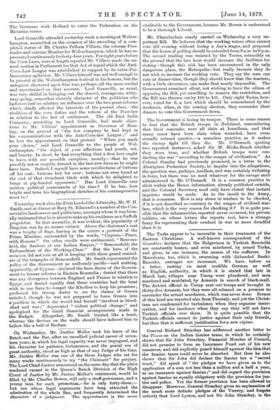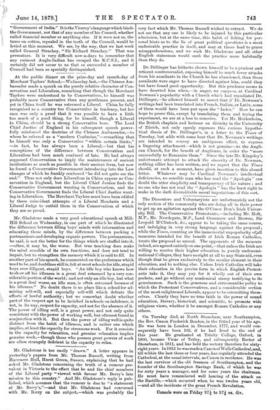General Richard Strachey has addressed another letter to. the Times
on the Indian famine taxes, in which he certainly shows that Sir John Strachey, Financial Member of Council, did not promise to form an Insurance Fund out of his new resources, and did explicitly guard himself against the idea that the famine taxes could never be absorbed. But then he also shows that Sir John did declare the famine tax a "sacred trust," did speak of "the pledges we have given as to the application of a sum not less than a million and a half a year, as an insurance against famine ;" and did regard the provision against famine as equally obligatory with the provision for jus- tice and police. Yet the former provision has been allowed to, disappear. Moreover, General Strachey gives no explanation of the much more definite pledges of the Viceroy, and forgets entirely that Lord Lytton, and not Sir John Strachey, is the
"Government of India." It is the Viceroy's language which binds the Government, not that of any member of his Council, whether called financial member or anything else. If it were not so, the taxes on cotton, repealed in the teeth of the Council, would be levied at this moment. We see, by the way, that we last week called General Strachey, "Sir Richard Strachey." That was premature. It is very difficult now-a-days to remember that any eminent Anglo-Indian has escaped the K.C.S.I., and it certainly did not occur to us that so successful a member of Council had been so specially distinguished.



































 Previous page
Previous page